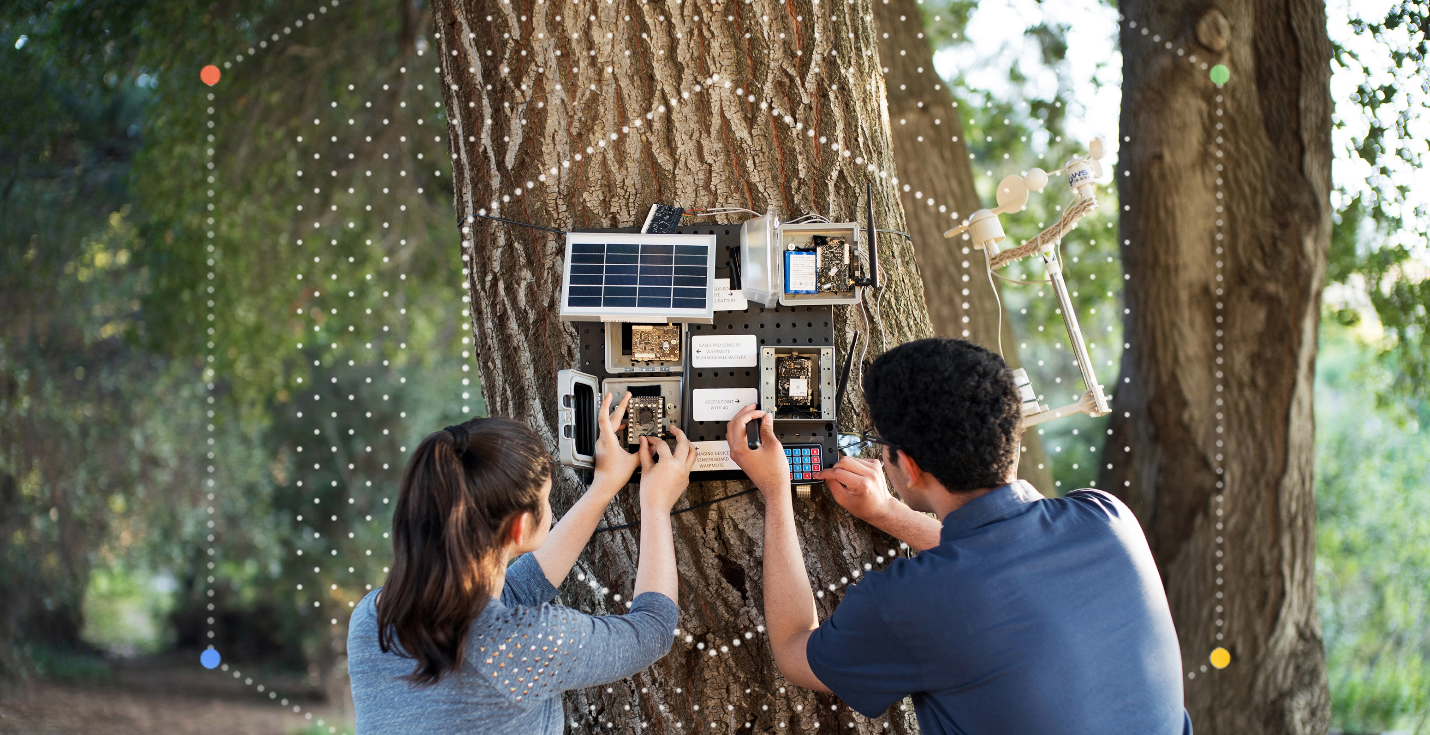
Introduction
Artificial Intelligence (AI) has ceased to be a futuristic concept and is now an integral part of our lives, revolutionizing various facets of our existence. From personal assistants to autonomous vehicles, AI has made once-unimaginable advancements possible. As we look ahead to 2024, the following five applications of AI are poised to significantly impact the world.
Join TechoVedas Community here
AI for Healthcare
AI’s potential in the healthcare sector is immense, promising improvements in diagnosis, treatment, and disease prevention. AI can analyze large amounts of medical data, such as electronic health records, medical images, and genomic sequences, to provide personalized and precise care for patients.
Some examples of AI applications in healthcare are:
-AI-powered diagnosis and treatment: Additionally, IBM Watson Oncology, utilizes natural language processing and machine learning to recommend evidence-based cancer treatments.
-Drug discovery: For instance, DeepMind’s AlphaFold predicted the structure of COVID-19-related proteins, aiding in the development of potential therapies.
AI for Cybersecurity
AI plays a crucial role in cybersecurity, safeguarding data, systems, and networks against evolving threats. It can analyze large and complex data sets, such as network traffic, user behavior, and malicious code, to detect and prevent cyberattacks, such as phishing, malware, ransomware, and denial-of-service.
Some examples of AI applications in cybersecurity are:
-AI-powered threat detection and prevention: Darktrace employs deep learning to identify patterns and anomalies, prioritizing threats and adapting security policies based on past attacks.
-AI for digital forensics and incident response: Companies like Cellebrite use AI for digital intelligence, employing natural language processing and machine learning to extract and analyze data from diverse sources.
AI for Agriculture
AI’s application in agriculture enhances food security, sustainability, and profitability. Analyzing data on soil, weather, crops, and markets, AI provides insights for optimizing farming practices such as irrigation, fertilization, and pest control.
Some examples of AI applications in agriculture are:
-AI-powered precision farming: The Climate Corporation uses AI to process data from sensors, drones, and satellites, offering real-time guidance on crop health, soil moisture, and nutrient levels.
– crop and animal breeding: Benson Hill utilizes AI for crop breeding, analyzing molecular and physiological traits to enhance taste, nutrition, and sustainability.
Read more: Why everyone is talking about Artificial Intelligence: Workings, future & Risks
AI for Space Exploration
It is also a vital tool for space exploration, where it can help expand our knowledge and understanding of the universe, and enable new discoveries and missions. AI can analyze vast and complex data sets, such as astronomical, planetary, and extraterrestrial data, to provide insights and predictions that can help scientists and explorers study and explore the cosmos, such as stars, planets, asteroids, and life forms.
Some examples of AI applications in space exploration are:
-space navigation and communication: ESA utilizes AI to optimize data and signals transmitted to and from spacecraft, enhancing accuracy and reliability.
-AI for space operation and exploration: SpaceX employs AI to automate and optimize spacecraft behavior, providing intelligent solutions for tasks like landing and docking.
AI for Social Good
Beyond personal and commercial applications, AI serves as a force for social good, addressing global challenges such as poverty, hunger, health, education, and the environment. Additionally, ÁI can leverage the power of data, analytics, and automation to provide insights and solutions that can help improve the lives and well-being of millions of people around the world. AI can also empower and enable various social actors, such as governments, NGOs, and communities, to achieve their goals and missions.
Some examples of AI applications in social good are:
-AI for poverty alleviation: Poverty Action Lab uses AI to analyze and predict causes and effects of poverty, offering evidence-based policy recommendations.
-AI for hunger eradication: World Food Programme utilizes AI to forecast food supply and demand, providing early warning and response to hunger-related challenges.
Read More : A to AI: How Apple is Fabricating Its Hardware Future on Silicon – techovedas
Conclusion
AI’s versatility empowers us to achieve personal, professional, and societal goals, enhancing our lives. However, ethical, legal, and social implications pose challenges and risks that require careful consideration. Embracing AI responsibly, we can create a world that aligns with our vision, addressing Einstein’s pivotal question: “What kind of world do we want to live in?” AI, wisely employed, can help us shape the answer and build a better world.




